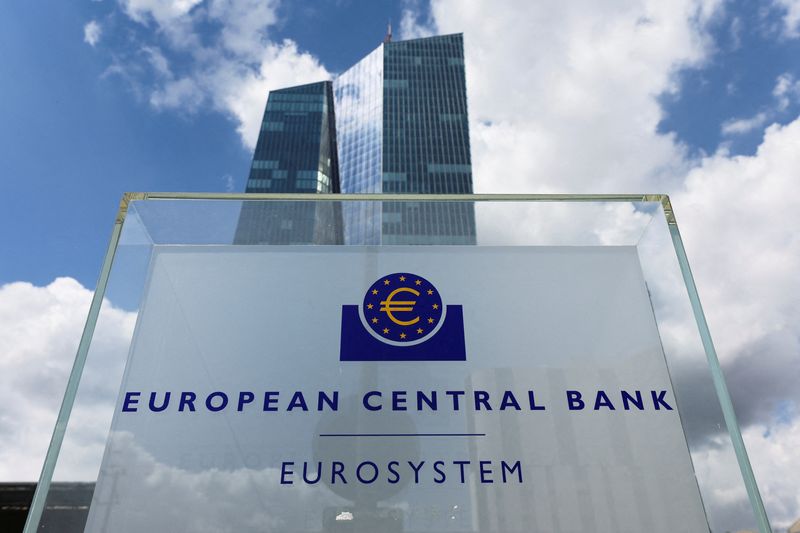A look at the day ahead in U.S. and global markets from Mike Dolan.
Most of world's major central banks are now going up a gear with historically sweeping interest rate rises to cool their economies and drag down inflation - and there are some signs it's already working.
The European Central Bank is widely expected later on Thursday to match the U.S. Federal Reserve's series of outsize 75 basis point interest rates, with markets now 80% priced for what would be its biggest rate rise ever. The euro steadied around parity with the dollar in advance.
The Bank of Canada joined the 75bp club on Wednesday, lifting its policy rate to a 14-year high of 3.25% and promising more. Faced with the highest inflation rates of the G7, the Bank of England will likely follow suit next week.
And as markets awaited fresh signals from Fed chief Jerome Powell later on Thursday, his policymaking colleagues speaking over the past 24 hours showed no sign of blinking in their tightening campaign. "We are in this for as long as it takes to get inflation down," Vice Chair Lael Brainard said.
Indeed, Goldman Sachs (NYSE:GS) now expects a steeper path for U.S. rate rises, forecasting another 75 bp Fed hike this month and further hikes to 3.75-4% by year's end.
But just as the hawks take flight, there some signs the global economic slowdown they are seeking via tighter credit is already well under way and sapping the key energy and commodity prices that have exaggerated decades-high inflation rates.
The Fed's own "Beige Book" survey of U.S. business, used for review at its next meeting, showed some encouraging signs that price pressures, labour shortages and supply chain kinks were easing.
But energy has been the biggest irritant and there was most relief from that front - aiding stocks and bonds around the planet despite the barrage of interest rate rises.
Although steadier on Thursday, Brent crude oil prices have plummeted below $90 per barrel this week on for the first time since before the Ukraine invasion in February - as signs of slowing Chinese demand and ongoing COVID lockdowns there met European price caps, household supports and plans to cut winter power usage. [nL1N30F02T
Even European natural gas prices, up almost threefold this year, have retreated by about 40% the over the past 10 days.
New British Prime Minister Liz Truss will lay out her plan to cap soaring consumer power bills on Thursday, with a package expected to be well in excess 100 billion pounds.
Currency markets remained restive, however.
Even though the rampant U.S. dollar fell back a touch against the euro ahead of the ECB decision, sterling - which hit its lowest level since 1985 on Wednesday at $1.1403 before bouncing - fell back below $1.15 again amid concerns about foreign investor confidence in UK government bonds.
The yen, which plunged to its lowest in 24 years close to 145 per dollar on Wednesday, also fell back again despite growing anxiety among Japanese government officials at the speed of its decline and warnings of action to stop "speculative" moves.
Key developments that should provide more direction to U.S. markets later on Wednesday:
* European Central Bank policy decision
* Fed Chair Jerome Powell speaks; Chicago Fed chief Charles Evans speaks
* Swiss National Bank Chairman Thomas Jordan speaks
* Fed issues Beige Book of economic condition
GRAPHIC: ECB rate hike https://fingfx.thomsonreuters.com/gfx/mkt/lgpdwdondvo/vincent.png
GRAPHIC: Fed 'terminal rate' https://fingfx.thomsonreuters.com/gfx/mkt/mypmnzayovr/One.PNG

GRAPHIC: Pound history https://fingfx.thomsonreuters.com/gfx/mkt/gkplgnlkxvb/Two.PNG
GRAPHIC: Japanese stocks https://fingfx.thomsonreuters.com/gfx/mkt/gkvlgnlllpb/Foreign%20flows%20into%20Japanese%20stocks.jpg